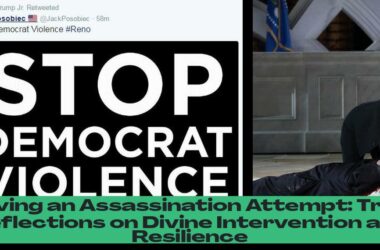Nate Diaz Files Lawsuit Against Fanmio, Seeks $9 Million Owed for Masvidal Bout

In a dramatic turn of events, Nate Diaz, the renowned mixed martial artist known for his aggressive fighting style and outspoken personality, has filed a lawsuit against Fanmio, the streaming platform that hosted his highly anticipated fight against Jorge Masvidal. Diaz’s legal action seeks to recover a staggering $9 million in unpaid compensation, alleging that Fanmio breached their contractual obligations. This legal battle has sent shockwaves through the combat sports world, highlighting the complexities and potential pitfalls of emerging streaming platforms in the boxing and MMA landscape.
Diaz’s suit, filed in a California court, lays out a compelling case, alleging that Fanmio, despite promoting the fight as a major event, failed to deliver on its promised financial commitments. According to the lawsuit, Diaz was guaranteed a hefty sum for stepping into the octagon against Masvidal, a fight that generated considerable buzz and drew a large audience. However, Diaz claims that Fanmio has yet to pay him the full amount owed, leaving him with a significant financial shortfall.
The lawsuit further alleges that Fanmio initially presented itself as a reliable partner, touting its ability to deliver on its promises and deliver a platform that would elevate Diaz’s profile and reach a wider audience. However, Diaz’s team claims that Fanmio’s performance fell short of expectations. The lawsuit alleges that the platform experienced technical glitches during the fight, affecting viewership and potentially impacting Diaz’s overall earnings. These claims, if proven, could significantly bolster Diaz’s case and increase the likelihood of a favorable outcome.
The legal battle between Diaz and Fanmio has raised important questions about the future of streaming platforms in combat sports. While these platforms offer a convenient and accessible way for fans to enjoy fights, the lawsuit highlights the need for greater transparency and accountability. It also underscores the importance of robust contracts that clearly define the financial obligations of both parties.
Diaz’s legal action comes at a time when the combat sports industry is experiencing rapid evolution, with new streaming platforms emerging and vying for market share. Fanmio’s failure to fulfill its contractual commitments to Diaz could have a significant impact on its reputation and future prospects. For Diaz, the lawsuit represents a fight for fair compensation and a chance to hold a major player in the streaming industry accountable.
The Battle for Pay-Per-View Dominance: Fanmio’s Rise and Fall
Fanmio, a platform that aimed to disrupt the traditional pay-per-view model in combat sports, initially presented a compelling proposition. It promised fans a more affordable way to access live events and offered a variety of features, including real-time stats, interactive content, and behind-the-scenes access. Fanmio’s arrival was met with excitement, as it promised to shake up the established order and provide a more user-friendly experience for fans.
However, Fanmio’s rise was short-lived. Despite securing high-profile fights, including the Diaz-Masvidal matchup, the platform struggled to gain widespread adoption. Several factors contributed to Fanmio’s decline, including technical glitches, a lack of marketing and promotion, and a failure to secure a consistent stream of top-tier events.
One of the key criticisms leveled against Fanmio was its reliance on a subscription-based model. While this approach offered fans a lower monthly price than traditional pay-per-view events, it failed to attract enough subscribers to sustain the platform. Many viewers felt that the subscription fee represented poor value, especially when compared to the abundance of free content available on other platforms.
Fanmio’s technical issues also played a significant role in its downfall. The platform experienced frequent glitches and outages, resulting in a disrupted viewing experience for many fans. These technical problems eroded trust in Fanmio’s capabilities and led to a decline in user engagement.
Ultimately, Fanmio’s failure to deliver on its promises and its inability to compete with established pay-per-view providers led to its demise. The platform’s demise serves as a cautionary tale, highlighting the challenges faced by emerging streaming platforms in the combat sports industry.
The Legal Battle: A Fight for Fairness and Accountability

Nate Diaz’s lawsuit against Fanmio is not just a fight for financial compensation; it’s a fight for fairness and accountability. Diaz, known for his independent spirit and willingness to speak his mind, is challenging the perceived inequities in the combat sports industry, where athletes often bear the brunt of financial risks while promoters and platforms reap the rewards.
Diaz’s legal action could have far-reaching consequences, potentially setting a precedent for athletes seeking to hold platforms accountable for their contractual obligations. If Diaz prevails in his suit, it could embolden other fighters to challenge platforms that fail to meet their commitments.
The lawsuit also raises the issue of athlete compensation in the combat sports industry. Despite the popularity of MMA and boxing, many athletes struggle to earn a living wage, with pay often dependent on the success of pay-per-view events. Diaz’s case could spark a wider conversation about the need for fairer compensation models for athletes.
The outcome of the lawsuit will be closely watched by fans, athletes, and industry insiders alike. If Diaz wins his case, it could send a powerful message to promoters and streaming platforms. It could also lead to a more equitable and transparent system where athletes are fairly compensated for their contributions to the sport.
The Future of Streaming Platforms in Combat Sports
The legal battle between Nate Diaz and Fanmio highlights the challenges and opportunities facing streaming platforms in combat sports. While these platforms offer a convenient and accessible way for fans to enjoy fights, they need to address the concerns raised by athletes and ensure that their contracts are fair and transparent.
Moving forward, streaming platforms need to focus on building trust with athletes and fans. This means consistently delivering on their promises, providing reliable technical infrastructure, and offering a high-quality viewing experience. Platforms also need to be transparent about their financial models and ensure that athletes are fairly compensated.
The success of streaming platforms in combat sports will depend on their ability to create a sustainable ecosystem that benefits all stakeholders, including athletes, fans, and promoters. This will require a shift in mindset, with a focus on collaboration and fairness.
As the combat sports industry continues to evolve, streaming platforms will need to adapt to the changing landscape and meet the demands of a discerning audience. The future of streaming in combat sports is uncertain, but one thing is clear: platforms that prioritize fairness, transparency, and athlete compensation will be best positioned for success.
A Look Back at Nate Diaz’s Legacy: A Fighter for the People
Nate Diaz, known for his unapologetic attitude, his ferocious fighting style, and his unwavering dedication to his craft, has become a symbol of resilience and authenticity. He has consistently defied expectations, challenging authority and speaking truth to power. In a sport often dominated by corporate interests, Diaz has remained true to his principles, earning the respect of fans and fellow athletes alike.
Diaz’s career has been marked by iconic moments, from his epic battles with Conor McGregor to his dominant victory over Tony Ferguson. His willingness to take on any opponent, regardless of their record or reputation, has cemented his status as a true warrior. He is not afraid to fight for what he believes in, both inside and outside the octagon.
Beyond his fighting prowess, Diaz is known for his outspoken nature and his commitment to social justice. He has used his platform to raise awareness about important issues, advocating for equality and challenging systemic racism. His willingness to speak out against injustice has resonated with many, solidifying his status as a fighter for the people.
Diaz’s legacy will be defined by his unwavering fighting spirit, his authenticity, and his commitment to standing up for what he believes in. He has shown that it is possible to be a successful athlete while remaining true to one’s values. He has inspired a generation of fighters and fans to embrace their individuality and fight for what they believe in.
Nate Diaz: A Fighter’s Fight for Fairness
Nate Diaz’s lawsuit against Fanmio is a fight for fairness, a fight for accountability, and a fight for the future of streaming platforms in combat sports. It is a fight that echoes the values Diaz has always stood for: integrity, authenticity, and a refusal to be silenced.
Diaz’s legal action could have a profound impact on the combat sports industry, setting a precedent for athletes seeking to hold platforms accountable for their promises. It could also lead to a more equitable and transparent system, where athletes are fairly compensated for their contributions to the sport.
The outcome of the lawsuit will be closely watched by fans, athletes, and industry insiders alike. Regardless of the outcome, Diaz’s fight for fairness will serve as a reminder that athletes deserve to be treated with respect and that streaming platforms have a responsibility to create a sustainable ecosystem that benefits all stakeholders.
As the combat sports industry continues to evolve, streaming platforms will need to adapt to the changing landscape and meet the demands of a discerning audience. The future of streaming in combat sports is uncertain, but one thing is clear: platforms that prioritize fairness, transparency, and athlete compensation will be best positioned for success.
Nate Diaz’s fight for fairness is a fight for the future of combat sports. It is a fight that will be remembered for years to come. It is a fight that could change the landscape of the sport forever.
- Nate Diaz has filed a lawsuit against Fanmio, seeking $9 million in unpaid compensation for his fight against Jorge Masvidal.
- The lawsuit alleges that Fanmio breached their contractual obligations by failing to pay Diaz the full amount owed for the fight.
- Diaz’s legal action sheds light on the challenges and potential pitfalls of emerging streaming platforms in the boxing and MMA industry.
- The lawsuit claims that Fanmio’s technical glitches during the fight may have impacted Diaz’s earnings and overall performance.
- This legal battle emphasizes the importance of transparency, accountability, and robust contracts in dealings between fighters and streaming platforms.









